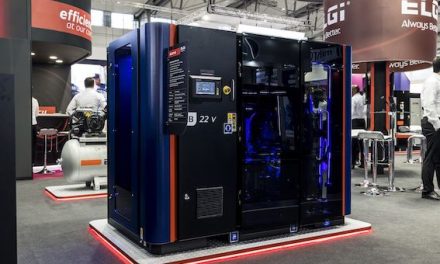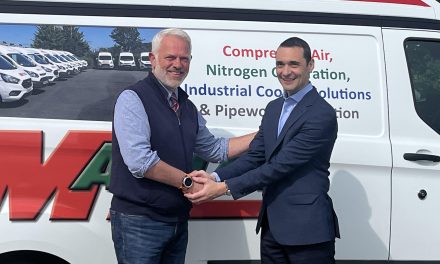 With hydraulic safety increasingly becoming a fundamental part of component and machine design, awareness of the most common faults and the safety features offered by new technology is essential. Nigel Ord, general manager of fluid power at Eriks, comments
With hydraulic safety increasingly becoming a fundamental part of component and machine design, awareness of the most common faults and the safety features offered by new technology is essential. Nigel Ord, general manager of fluid power at Eriks, comments
With hydraulic safety increasingly becoming a fundamental part of component and machine design, awareness of the most common faults and the safety features offered by new technology is essential. Nigel Ord, general manager of fluid power at Eriks, comments
Safety is of paramount importance when dealing with hydraulic systems. This is particularly true in areas such as mining, quarrying, recycling, construction and offshore, where the operating environment puts hydraulic equipment under considerable daily stress and makes routine maintenance difficult.
Hydraulic safety is increasingly becoming a fundamental part of component and machine design in order to prevent, for example, the wear and abrasion of hydraulic hose that leads to safety-threatening leaks, contamination and fire hazards.
A major risk to the safety of engineers is the high level of fluid pressure that is typically found in hydraulic applications. A sudden release of high pressure fluid can cause serious injury, with the most common injuries caused by hydraulic equipment resulting from pinhole leaks in hoses. A typical example of poor practice is observed when operators look for such leaks in hydraulic lines by running a hand or finger along the line. If a leak is found, the pressurised fluid can penetrate the skin with the ease of a hypodermic syringe. So serious are the consequences of high pressure fluid injuries that ERIKS, in conjunction with the British Fluid Power Association (BFPA), has launched a course to instruct anyone who works with hydraulic machinery in the safe installation and maintenance of such equipment.
However, by following best practice guidelines and applying a common sense approach, risks can be minimised. Examples include keeping the hands and body well away from leaks and components that might eject fluid under high pressure.
Designing safety in
Once the machine or system has been design and built, the user then needs to be proactive, rather than reactive, when it comes to maintenance. For some, waiting until equipment fails may seem the most economical option, the theory being that this allows plant production to remain uninterrupted and extracts the maximum use from components before they are discarded. In reality, a scheduled replacement is more cost-effective and safer.
Safety needs to be designed in from the outset, which is why legislation and guidelines, including the Pressure Equipment Directive, requires manufacturers of hydraulic equipment and components within the EU to provide machine builders and end users with safe equipment
Component quality is also essential in this industry. Safety needs to be designed in from the outset, which is why legislation and guidelines, including the Pressure Equipment Directive, requires manufacturers of hydraulic equipment and components within the EU to provide machine builders and end users with safe equipment.
Furthermore, equipment needs to be assembled correctly. Repeated contact with oils and greases from poorly assembled equipment can cause serious skin disease in machine operators. One such disease, contact dermatitis, a common risk in quarrying and mining, is, according the Health and Safety Executive (HSE), the cause of 70% of skin conditions reported. Frequent contact with diesel, oils and grease can easily lead to the development of contact dermatitis and so operators can take care of their employees by offering not only skin care products but also support materials that raise awareness and understanding of the issue. The HSE has even reminded employers that paying proper attention to the skincare issue comes under the legal obligation to provide a safe working environment.
Ensuring that hydraulic systems are correctly specified, installed and maintained, means that operators can be sure that they’re using safe and reliable equipment.
ERIKS
T: 0121 508 6219


